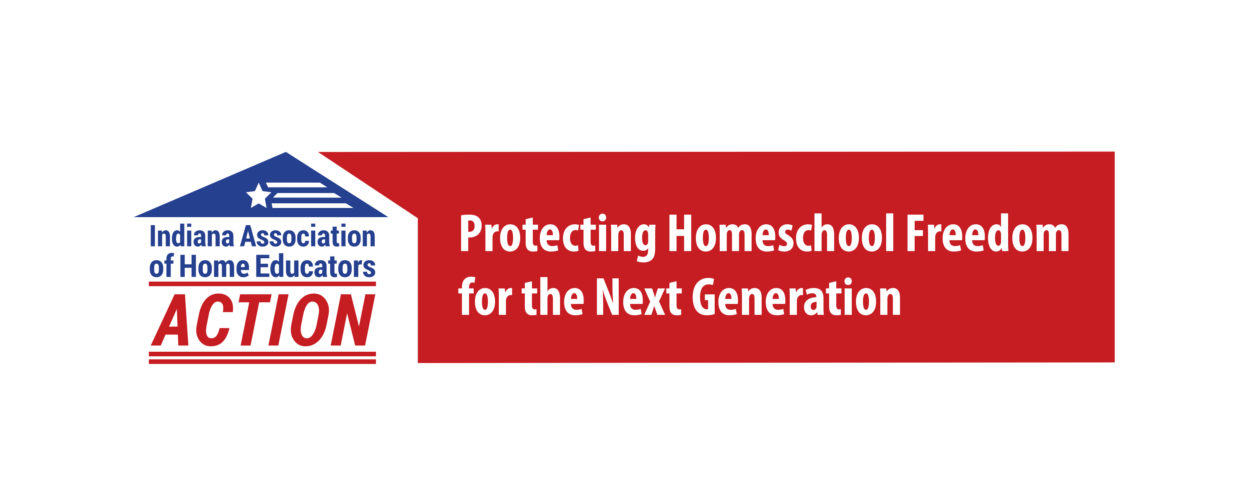U.S. COMMISSION ON CIVIL RIGHTS INDIANA ADVISORY COMMITTEE SCHOOL-TO-PRISON PIPELINE IN INDIANA
This is the first installment in this series.
IAHE Action blogged about this hearing in March. The U.S. Commission on Civil Rights, Regional Programs Unit sent Indiana Association of Home Educators (IAHE) the 600+ page transcript of the hearing and has given IAHE the opportunity to respond after IAHE Director of Government Affairs, Debi Ketron, wrote a letter expressing concerns about the hearing after receiving negative reports from those in attendance. Many times hearings only allow for three minutes of public testimony per speaker, so we feel compelled to publicly respond on our blog to be certain all issues related to home education in this February 17, 2016, hearing are thoroughly addressed in public.
Background from the hearing: “In each of the 50 states and the District of Columbia an Advisory Committee to the Commission has been established and they are made up of responsible persons who serve without compensation to advise the Commission on relevant information concerning their respective state.
Today our purpose is to hear testimony regarding the Civil Rights impact of school discipline policies and practices in Indiana. The committee is seeking information on school disciplinary practices and policies that may also have a desperate impact on students of color and students with disability and possibly the intersection of the two. The Committee is examining the dynamics that are leading to a disproportionate number of students of color being involved in the juvenile justice system and ultimately the adult justice system and the impact that has on a student’s educational experience and their ability to compete. Furthermore, the topic being discussed today has been coined the School-to-Prison Pipeline”….
We are sharing excerpts that would be of special interest to Indiana home educators. IAHE’s response is in BOLD.
TESTIMONY: Pg. 76 Testimony of Ms. Daniels with the National Council on Educating Black Children.
“Indiana does not have a home school statute on the books. They do have statutes that govern compulsory attendance from age 7 to 18. They do have laws that require students to attend school 180 days, and they do have laws that say a school that is non-public, non-accredited, and not otherwise approved by the Indiana State Board of Education is not bound by any requirement set forth in IC-21 with regard to curriculum or the content of educational programs offered by the school.
We began to look at this homeschooling because we interviewed three principals at one of our meetings and they talked about the fact that if a student gives them lots of problems within the school, they will refer that student to transfer into home schooling. I never heard that term before in my 50 years of teaching.”
IAHE Action’s response: Unfortunately the speaker omitted a very important piece of Indiana Code that states Indiana home educators must provide an education that is equivalent to the public schools. (IC 20-33-2-28)
IAHE has long suspected principals were referring problem students to home education. We are glad to see the speaker has publicly confirmed our suspicions. It’s even worse that principals are referring students who are expelled with a lack of parental support to home education. That should be criminal. It displays a complete lack of understanding of home education. Parents must be motivated, prepared and sacrifice to successfully homeschool. Parental involvement is what has made home education successful for tens of thousands of Indiana families over the past thirty-three years. Home education is a parent teaching their child throughout the day by modeling and assisting the student. The student in return must respect and obey the parent to begin copying the parent’s behavior and study habits. Parents unable or unwilling to model proper academic habits and children unwilling to respect a parent are not suitable candidates for home education. Homeschooling is not for every family situation. It is troubling to see principals coercing families into inappropriate educational options.

TESTIMONY: Pg. 80. “So we began to do some homework on that and the next two pages are talking about alternative statutes that allow home schooling within the state without a statute on the book. Basically someone said this is the Wild West, you can come and do whatever you want to do in this state when it comes to home schooling and, no, there is no regulations out there at all. So the whole thesis that we base this upon is we assert there is a lack of governance by the state of Indiana on home schooling and other mobility rate factors such as missing children. The Department of Ed tries our best to keep track, but only the parent has to report that they are doing the home schooling and sometimes that does not happen.”
IAHE’s Response: Indiana homeschool families are instructed by IAHE that they must send a letter when exiting their local public school or else they may be charged with truancy. In 2013, IAHE worked with the Indiana General Assembly to correct the public school issue of dropouts claiming to homeschool, but were actually truant. The school should have a record of where these high school students have gone since they must now have a parent and the principal sign a form that acknowledges the parent understands the legal requirements of home education in Indiana.
A number of public school principals seem to believe they are in the Wild West when it comes to homeschooling. By their irresponsible action of pushing a child with severe discipline issues into a form of education that requires obedience and self-control, public school principals have created a separate underclass of Wild West education. These are not traditional home educating families that have been a part of making home education a successful alternative to public education for over three decades. Traditional home educating families may participate in homeschool co-ops or attend homeschool days at museums. Current homeschool laws, when followed by committed families, are more than adequate to assure equivalent education in the home. The parent’s time spent with the child is what makes home education successful.
Teens call IAHE and tell us:
1.) I cannot learn in the public school. There is too much drama. I do not have parental support. I want to homeschool.
2.) I was expelled, and I want to homeschool, but there is no parental support.
It would be irresponsible for IAHE to counsel these children to homeschool without parental support. Why are “professional” educators doing this knowing full well the children are likely to be set adrift? Sounds an awful lot like passing the educational buck. As home educators, we know that home education is impossible without a responsible adult overseeing their child’s education.
Home education needs to be a parent-driven decision and not a public school-driven recommendation. It is a weighty responsibility that is not to be taken lightly. The casual attitude with which school principals refer troubled students with behavior issues to home education is reckless and not in the best interest of the child.
IAHE receives calls from parents whose children have been pushed out of public school. They contact IAHE to “enroll their student” for someone else to teach. They do not understand that as a homeschooler, the PARENT is the one who gladly takes full responsibility for teaching their child. Home education is an exciting adventure as we learn along side our children!
When these parents come to understand they are fully responsible, they are not at all interested in home education. Often the school has already reported their enrollment as a homeschooler to the Indiana Department of Education (IDOE) despite the fact the family was wholly unfamiliar with this form of education. We refer the families back to the school or to the IDOE for a more suitable option.
Parents who have children with special needs that struggled in an institutional school setting have found success with their children when they began teaching them at home.
A parent deciding to home educate without pressure by the school is a different situation. A motivated and loving parent with an obedient, self-controlled child is required to be successful in this educational choice. Hundreds of thousands of parents have been successful homeschool teachers over the course of the past three decades. Countless low-income families have been very successful as well. Indiana homeschoolers are accepted into schools of higher education and do very well because they are motivated self-learners. One Indiana homeschooler was even chosen to clerk for the late Antonin Scalia. Indiana homeschool graduates are in all walks of life as doctors, lawyers, CPAs, teachers, graphic designers, scientists, authors, blue-collar workers, etc. Indiana’s low-regulations have given these families the freedom to focus on learning.
Support IAHE Action’s work of protecting Indiana homeschool freedom.
Donations to IAHE Action are NOT tax-deductible.


One the reasons we decided to live in Indiana rather than Kentucky is the fact that there is so little regulation of home school families. I have friends in other states that must submit their portfolios and have their children tested and jump through many hoops. In Indiana I am free to focus on making sure my children are learning instead of focusing on keeping certain records and preparing my children for tests on things we may not have covered yet. My children are learning together and loving it!
We are glad you chose to be a Hoosier, Laura. Many Indiana homeschoolers live close to the state line and have chosen Indiana for the same reason. We are thankful that the Indiana General Assembly has shown great wisdom in allowing low regulations in our state. Take a look at the IAHE Testimonial page; it proves how Indiana’s low homeschool regulations have allowed children to blossom.
I know that the push-out problem has been happening a long time, and regulating people who have their kids’ interests in mind is not the answer. The kids who have the big problems are ones with little to no parental involvement. This is the exact opposite of what you see when you have people who give up an income in order to educate their kids.
Typical school would not work for any of my kids. My oldest has a very high IQ, but he also had to move around to learn when he was younger. He could do math several years ahead of grade level, but only when he was swinging upside down from the trapeze on the swing set, or twirling on an office chair. A typical school setting would have defined progress by having the teacher concentrate on making him sit still, while mostly ignoring what was going on in his head. My mom is a teacher, and she witnessed her fellow teachers doing just that many years ago. It would be even worse now, with teaching jobs hanging on testing results.
Kids have different learning styles for which they learn most efficiently. A classroom setting, no matter how perfect, is not going to be able to adequately address all of those. The classroom style teaches to the center of the bell curve by default, but it underserves the kids on the ends. Parents who have decided to homeschool as independent, self-funded homeschoolers are aware of this and often make the choice for just this reason. They want their kids to be able to reach as close to their full potential as possible, not spend their efforts trying to learn by a method that is not efficient for them, not being a square peg trying to fit itself into a round hole.
A lot of information is passed around in the homeschool community, and there is a large, diverse, and thriving community involving many forums, groups and websites where homeschooling parents go to ask questions and find resources and support. It’s far more Little House on the Prairie than it is The Wild West.
I love your final line. Little House on the Prairie is absolutely a better description of what true homeschoolers experience.
Thank you for your efforts in making sure homeschoolers are informed and encouraged. We appreciate you.
The amount of misinformation in these quoted testimonies that is being placed as fact is more than just alarming.
We agree. We were told the testimony was bad, but we were absolutely shocked when we read the transcript.